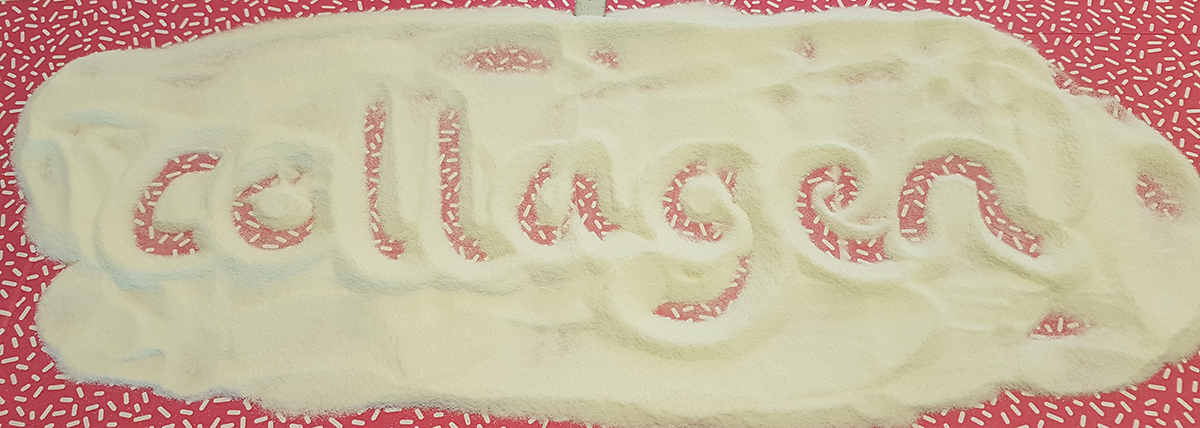Sorry, nothing in cart.
Collagen – is it worth taking?
About a week ago on New Zealand television there was an article that suggested that collagen might not be worth its current trending status. Before I write any more, there are two important things to disclose. Firstly I didn’t see the television programme and secondly, we sell collagen @homestead.health, which means that I am not a neutral party. However, as always, we look to see what studies have been done & I like to share feedback from what our customers are saying.
Firstly, why would you consider taking collagen? Collagen is a part of our connective tissues including skin & the mucous membranes which includes the lining of the gut, & in muscles, & joints. It is also a component in bones. Most customers take collagen to improve skin health (yes to get rid of wrinkles!!) However, people also take collagen to help with digestive issues such as leaky gut and to support skeletal problems too, such as bone and joint issues. Often customer feedback is that they buy it for their skin, and get unexpected improvement in other areas.
Growing up, we used to eat collagen rich meals when bones would be boiled to make soups and stews. By all means, this is a great option. Good skin health always starts with eating well & good hydration. If you are making soups and stews with the bones included, add apple cider vinegar to help the process. Nowadays however, most of us tend to eat less of these types of foods so naturally tend to have less collagen in the diet.
Which type should you take?
There are three types of collagen. Types 1 & 3 are predominantly found in skin, where as type 2 is mostly found in the connective tissues surrounding joints, like cartilage and ligaments. Supplements come with different types of collagen, designed with this in mind. Some also contain additions, such as vitamin C (or plants containing this), as this vitamin is also important for collagen formation. When you read online, most articles will tell you marine collagen is better for skin health, as it is predominantly type 1, which is closest to what is found in our skin. Although this is true, in our experience from customer feedback, people seem to have a similar experience with either marine or bovine collagen, with the latter being less expensive. Collagen is hydrolysed, or broken down slightly during its manufacturing process. This makes the molecules smaller & easier to absorb which is probably the reason that the feedback is similar between the different types.
What does the science say in relation to collagen for skin health?
The following was reported in the Journal of Dermatological Treatment in a double blind placebo controlled study, made up of 36 menopausal women. It concluded that there was a statistically significant improvement in skin elasticity in the participants, especially in sun exposed areas of skin. The dosage was 5g a day of marine collagen, for 36 participants over four weeks. (1)
Another double blind placebo controlled study, published in Skin Pharmacology Physiology showed a statistically significant improvement in skin elasticity at the end of an 8 week treatment, for the participants taking collagen hydroslysate. This study was on women aged 35-55 years who were randomized to receive 2.5 g or 5.0 g of collagen hydrolysate or placebo once daily with 23 subjects being allocated to each treatment group. There were other skin health measures taken such as hydration status, but there wasn’t a statistically significant change for these.(2)
There are literally dozens of articles showing improvement in elasticity. As normally happens with these types of studies, the size of the trials are reasonably small but in my view there is enough evidence to suggest collagen may be helpful for skin elasticity.
For my 2 cents worth…..
Bovine collagen has no taste and mixes well with any liquid, therefore you can take it with your morning cup of tea! Its also available in capsules but you need to take a reasonably large amount each day to get to the desired level. If not included in the collagen product, its worth taking Vitamin C alongside, or taking your collagen with a small amount of juice. For best results take it on an empty stomach. My two favourite products are Great Lakes Collagen Powder and NeoCell Super Collagen + C.There are also other great products that help the skin, like Astaxanthan, Grapeseed & good quality Omega 3’s. There are also vegetarian products available that can help to support collagen. Topically manuka honey has great skin healing properties and assists in diminishing redness, so a range like Living Nature for skin care is fabulous. Trilogy products also contain vitamin C from rosehips, the base oil in their products. We have excellent options for skin care with our botanicals and natural products made right here in New Zealand. These are not up on our website yet but if you are interested, we do have them in stock in the store, and can send out.
- Sangsuwan, W., & Asawanonda, P. (2020). Four-Weeks Daily Intake of Oral Collagen Hydrolysate Results in Improved Skin Elasticity, Especially in Sun-Exposed
- Proksch E, Segger D, Degwert J, Schunck M, Zague V, Oesser S. Oral supplementation of specific collagen peptides has beneficial effects on human skin physiology: a double-blind, placebo-controlled study. Skin Pharmacol Physiol. 2014;27(1):47-55. doi: 10.1159/000351376. Epub 2013 Aug 14. PMID: 23949208.
-
FREE SHIPPING ON ORDERS OVER $60
-
CALL OUR STORE ON 03 385 0364
-
QUALITY BRANDS AT GREAT PRICES
-
EMAIL OR MESSAGE US

